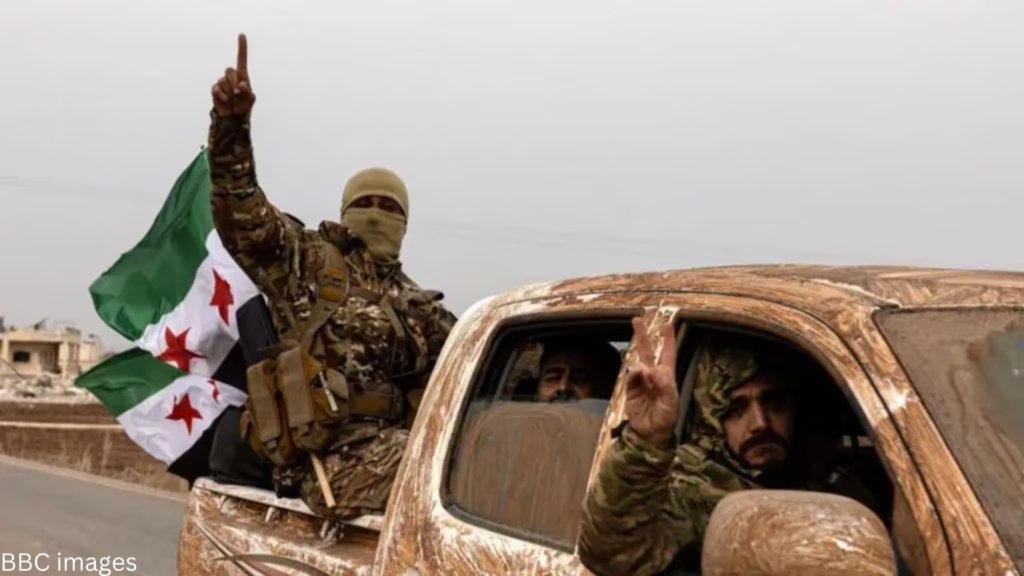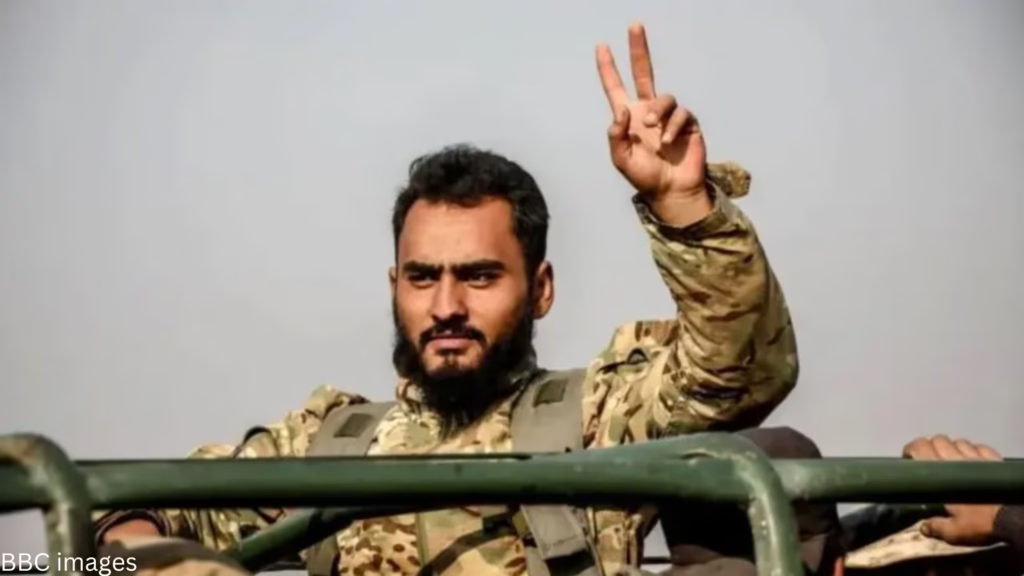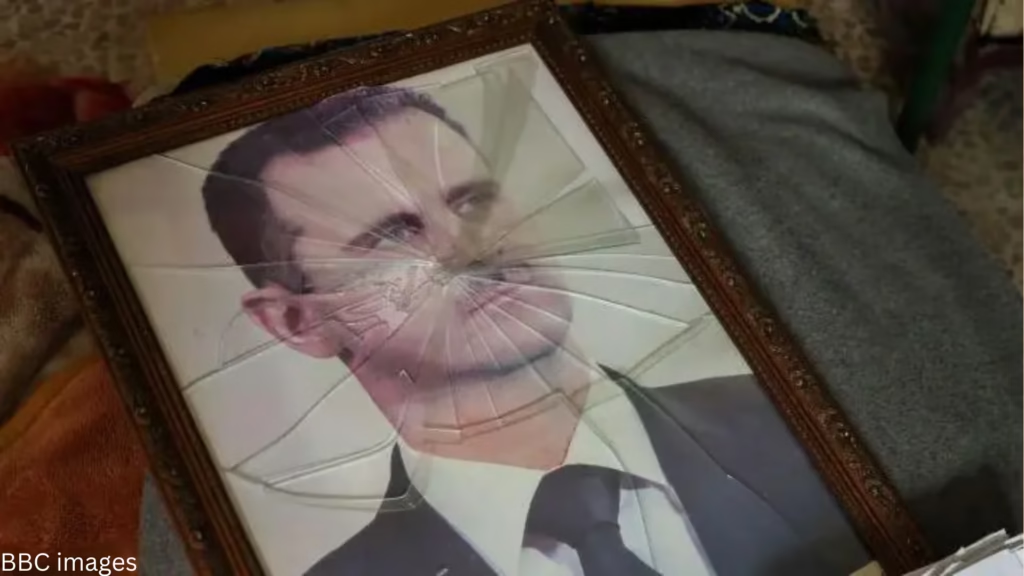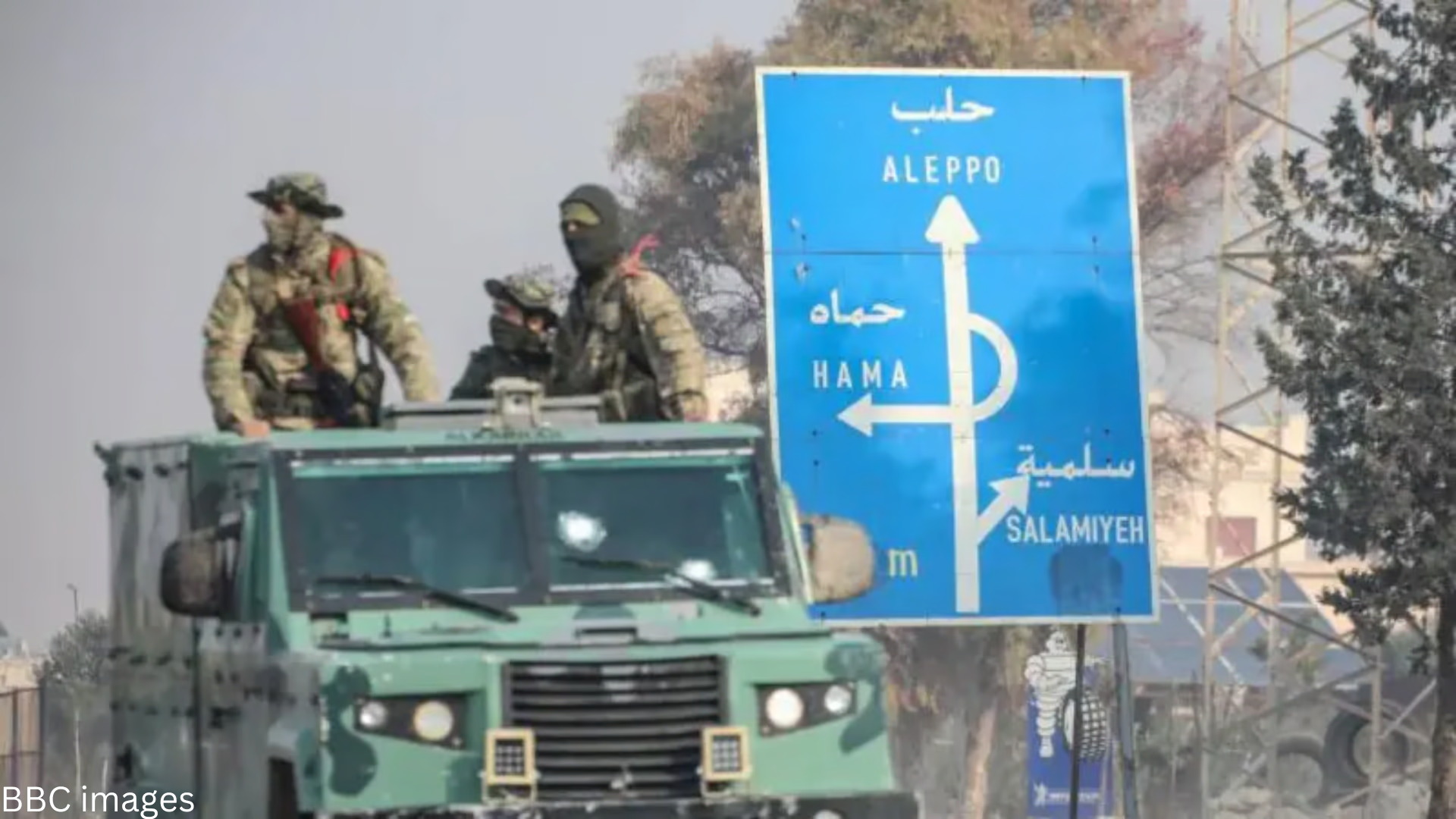In Syria, rebel groups are advancing from the north, east, and south to capture the capital Damascus.
42-year-old journalist Zaina Shahla, who lives in Damascus, told the BBC that the streets of the capital were deserted on Saturday night.
She said that as reports of fighting with the rebels were coming out, a large number of people in Damascus flocked to the streets in the morning to collect essential items.
Islamist rebels have claimed that they have completely captured Syria’s third largest city Homs and now they are moving towards Damascus.
Zaina Shahla said, “We are scared because we do not know what is going to happen. No one wants a fight in Damascus. There is confusion everywhere here and no one can know anything.”
Rim Turkmani, director of the Syria Conflict Research Programme at the London School of Economics, said similar things about Damascus.
Her sister lives in Damascus and told Rim that shops are closing, essential supplies are running out and ATMs are empty.
“Nobody knows what’s happening,” Turkmani told the BBC.
Rebels march towards Damascus

Damascus has never seen the kind of violence that other cities have seen in the civil war that has been going on for nearly a decade.
Shahla said that this is why there is a sense of stability among residents here. She says, “If there is any kind of change, it will not be very easy.”
But there are reports that as rebels led by Hayat Tahrir al-Sham (HTS) are capturing one area after another in the north of the country, the situation in the suburbs of Damascus is changing rapidly.
An unnamed US official told BBC’s US affiliate channel CBS News that “one area after another” in Damascus is falling into the hands of the rebels.
The rebels have claimed that they have surrounded Damascus.
Video footage shows some protesters in Jaramana, a suburb of Damascus, breaking the statue of Bashar al-Assad’s father Hafez al-Assad.
Syria’s state news agency has claimed that to create rumors among the public, ‘sleeper cells’ are sharing video clips of public places in Damascus on social media and claiming that they have taken over them.
Meanwhile, the Syrian government has denied the rumor of President Bashar al-Assad leaving the country.
In addition, the Home Ministry has said that a “very strong military siege” has been put around the capital.
However, government forces have failed to provide any special security to the cities, towns, and villages that have fallen into the hands of the rebels.
Over the past week, HTS has made rapid progress, seizing the northwestern cities of Aleppo and Hama in a surprise attack.
Claims to take control of the third-largest city Homs

On Saturday night, HTS claimed full control of the strategic city of Homs. The group said it had released 3,500 prisoners from an army prison in the city.
Homs is Syria’s third-largest city and links the capital Damascus to the coastal areas.
Rebel commander Hassan Abdul Ghani claimed government forces were evacuating the city and that a “group of senior officers was coordinating with us to ensure a safe transition”.
Footage posted on social media allegedly showed a convoy of government forces leaving the city of Homs.
But Syria’s defense ministry has insisted that reports of militants entering Homs are ‘baseless’ and said government forces have taken up a ‘strong defensive position’ in the city.
The rebel coalition has taken control of Deraa in the south, while HTS is gaining ground in some of its areas. They are now moving towards Damascus from the south.
HTS chief Abu Mohammad al-Zulani has described the capture of Homs as a ‘historic victory’ and has appealed to his fighters not to harm those who surrender. The BBC does not confirm these claims.
Major setback for Assad

According to the Britain-based Syrian Observatory for Human Rights (SOHR), rebel fighters opposing Bashar al-Assad entered the city of Homs and captured several areas.
The fall of Homs into the hands of the rebels is being considered a major setback for Syrian President Bashar al-Assad as it has isolated Damascus and cut it off from the coastal areas considered to be the stronghold of Assad’s family.
Assad’s family belongs to the minority Alawite sect. It dominates the coastal areas of Syria.
The victory of Homs is a symbolic victory for the rebels because it became a stronghold of the rebels in the initial days when the civil war started in 2011.
Rebel commander Hassan Abdul Ghani said, “Efforts are on to liberate the outskirts of Damascus and our eyes are on the capital Damascus.”
Rebel groups making gains in the south say they have seized Deraa and Suwayda, close to the Jordanian border.
The Syrian Observatory for Human Rights says 800 people have been killed in the fighting so far.
The United Nations says 3.7 million people have been displaced so far, including Alawites who are fleeing the area to escape the rebels.
The UN says the fighting has worsened already dire conditions for civilians in the north of the country.
The UN’s special envoy for Syria, Geir Pedersen, told the BBC on Saturday that he believes there is still a way to resolve the deteriorating situation in Syria. However, he also warned that the situation in Syria could once again become very bad.
Pedersen said that many countries are in contact with the rebels and have stressed the need to avoid chaos and bloodshed.
Want to promote your website organically contact us and rank your website with our SEO expert
Pedersen said this during a meeting in Qatar of representatives of five Arab countries and three external powers involved in Syria’s affairs – Iran, Turkey, and Russia.
A joint statement in this meeting said that the current crisis has posed a threat to regional and international security.


